In modern-day information technology, data science has become an essential force, transforming industries, guiding the intricacies of decision-making processes, and unraveling insights from vast amounts of data. As a cross-disciplinary domain, data science merges statistics, computer science, and domain expertise to derive meaningful insights from raw data.
Yet, beneath algorithms and cutting-edge technologies lies a set of fundamental principles that lays the foundation for this discipline.
Aditya Garg, Sr. Data Scientist at Tesla, delves into ”Data Science from First Principles”, a presentation at the Nordic Data Science and Machine Learning NDSML Summit 2023. He sheds light on the foundational principles of data science and the path to navigating its complexities. His presentation covers the foundational elements and building a framework for tackling data science problems.
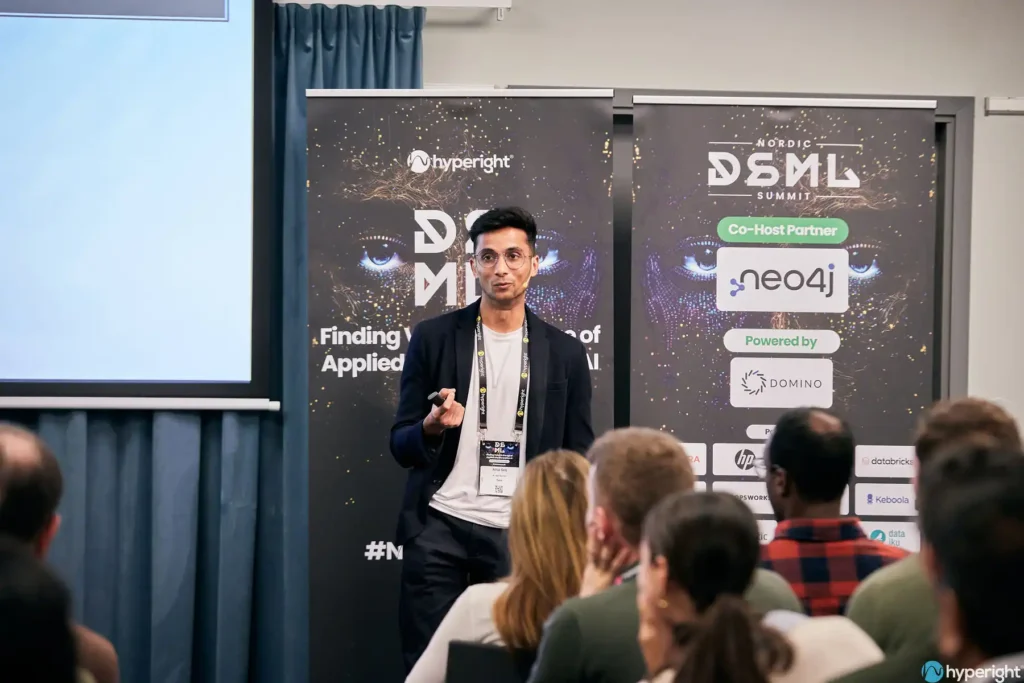

The Significance of First Principles in Data Science
Aditya begins by introducing the first principles of effective problem-solving within data science. Furthermore, he provides a framework for structuring data science problems using first principles. Finally, he explores real-world examples, showcasing the practical application of the framework.
So, what exactly are first principles?
This concept involves breaking down complex phenomena into fundamental laws or truths. Deconstructing existing knowledge entails removing assumptions by asking ‘why’ to uncover the basic truths of human understanding.
Practical Application of First Principles
Water, observed for its properties, raises questions about its origins. Further exploration unveils its H2O composition, exposing fundamental truths that explain diverse physical phenomena.
This continuous questioning reflects the Socratic method, where we relentlessly ask ‘why’ until we reach a point that facilitates reconstruction.
A decade ago, skepticism about electric vehicle batteries emerged due to perceived high costs. Its materials contribute to only a fraction of the overall cost. This leads to a systematic examination, viewing knowledge as a pyramid with first principles, guiding the creation of theories, hypotheses, and innovative solutions.
”The higher you go on the pyramid, the more your assumptions and hypotheses accumulate, creating a space where you operate with less informed or less solid foundational ground.” states Aditya.
Despite potential challenges and imperfections, solutions risk being disproven by new data. However, first principles rest on fundamental truths, offering a solid foundation for reconstructing solutions and theories among evolving data.
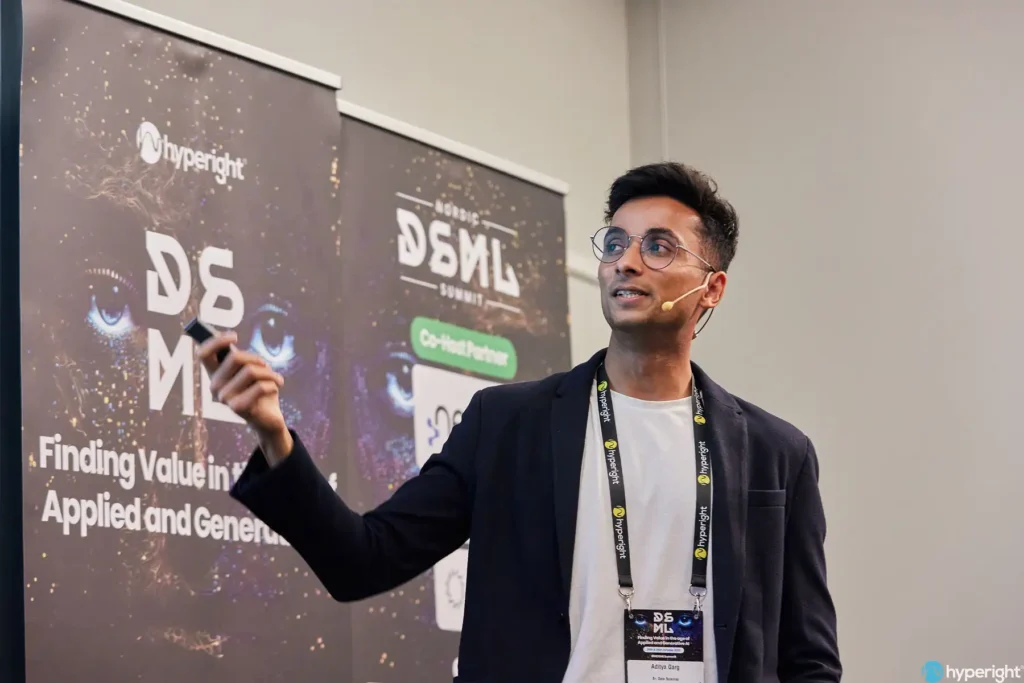

Reasoning from First Principles in Data Science
Aditya continues to explore methods of reasoning, which typically fall into two categories: reasoning from analogy and reasoning from first principles. ”Tim Urban makes a distinction between a cook and a chef.” adds Aditya. Reasoning by analogy involves adapting past solutions and drawing from existing knowledge. While effective, this method is limited to existing knowledge.
In contrast, a chef grasps the first principles of a meal, understanding ingredient interactions and synergy for an exceptional product. This enables a more innovative approach, unconstrained by existing solutions.
Reasoning from first principles mirrors the chef’s approach. However, the world isn’t neatly divided into cooks and chefs. The crucial factor for innovation lies in adopting the first principles approach. This method simplifies complex problems into foundational knowledge blocks, like Lego bricks of understanding. Once problems are broken down, framing them is straightforward, paving the way for constructing new and more creative solutions.
”Liberated from past constraints, you can explore a myriad of possibilities.” states Aditya. ”Break free from artificial limits, and construct solutions from the ground up with out-of-the-box thinking, rooted in a fundamental understanding of the universe.”
Dual Systems of Decision-Making
First-principles reasoning, while valuable, isn’t our default thinking mode. Our brains prefer the path of least cognitive resistance, a concept outlined in Daniel Kahneman’s dual-system model: System 1 and System 2.
- System 1 guides intuitive decisions, constituting 95% of our thoughts, crucial for rapid survival reactions, in contrast to the deliberate and effortful nature of System 2 thinking.
- System 2 entails deliberate reasoning, demanding careful analysis, in contrast to System 1’s reliance on quick, intuitive answers based on past experiences. The bias toward cognitive ease poses a challenge to maintaining consistent engagement in first-principles thinking.
Moreover, system 1 opts for quick decisions based on confidence, while System 2 promotes thorough examination. First-principles reasoning, consciously building arguments from the ground up, doesn’t happen instinctively.
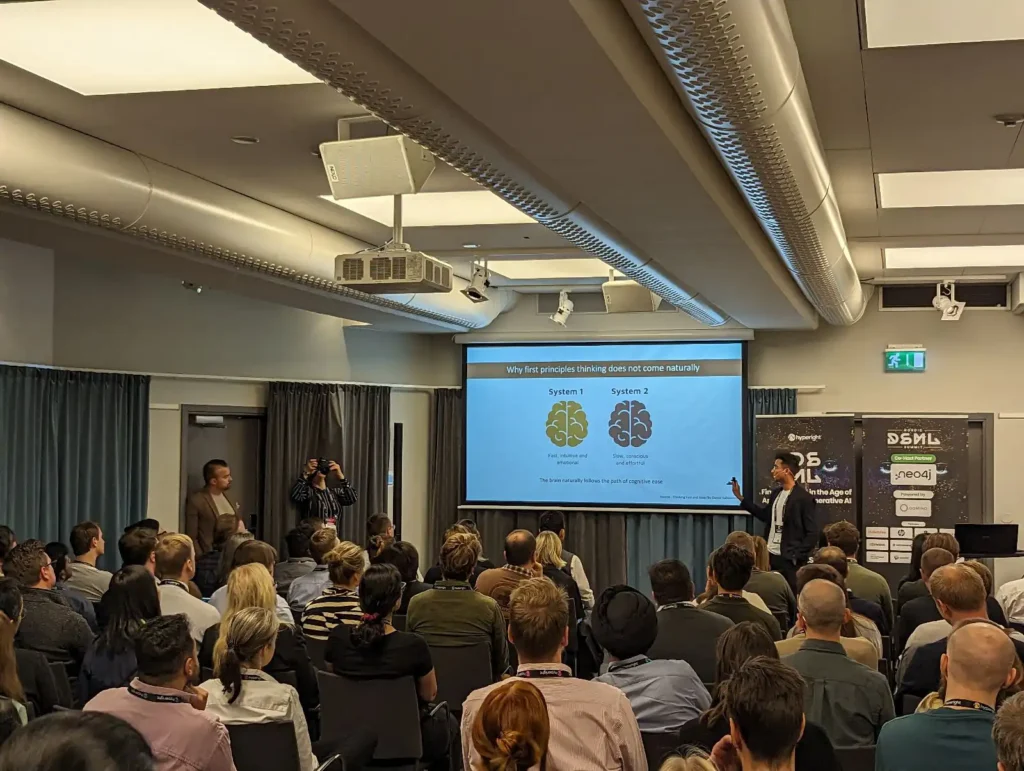

Practical Application to Data Science Problem-Solving
Efficient problem-solving in data science entails a systematic breakdown into three stages: measure, model, and optimize:
- The measure phase uses first principles to pinpoint key elements for decision-making and optimizing user experience through iterative questioning. In the context of EV charging network, the measure phase focuses on quantifying important aspects of accessibility and convenience through metrics such as “traffic coverage” and “wait time”.
- The model stage involves understanding factors influencing identified measures. It includes examining interactions among measures and various elements to create predictive models for optimal decision-making. Aditya demonstrates the framework’s practicality through a daily challenge: choosing breakfast. This versatile model is equally effective for substantial challenges, such as leading the development of a global electric vehicle (EV) infrastructure. Addressing this challenge involves a nuanced examination of first principles, prompting questions about optimal solutions, considering that 60-70% of charging occurs at home.
- The optimization phase defines measures, models infrastructure, and optimizes configurations based on the chosen strategy, serving as a blueprint for translating the mission into practical steps.
Key Takeaways
1. Understanding of the Foundations of Data Science Principles: Beneath the various algorithms and technologies used in data science, there exist fundamental principles that shape and define the discipline. Therefore, understanding these fundamental principles is essential for anyone seeking to grasp the core concepts and approaches in data science.
2. Harnessing First Principles for Innovative Problem-Solving: Aditya Garg introduces the concept of breaking down complex phenomena into foundational truths. The application of this approach to data science predicaments amplifies coherence and elevates manageability. The distinction between reasoning from analogy and reasoning from first principles encourages innovative problem-solving that is not restricted by pre-existing solutions.
3. Practical Application of Theoretical Concepts underscores the significance of formulating a problem statement into a general framework that allows objective measurement, intuitive modeling, and strategic optimization for goals. The examples illustrate how the theoretical framework can be practically implemented and its relevance in addressing tangible challenges. This emphasizes the importance of bridging theory and practical application in order to demonstrate the efficacy and real-world value of the concepts.
4. Challenging Assumptions and Cognitive Bias emphasizes the critical role of questioning assumptions and deconstructing problems. This underscores the significance of a proactive and analytical approach to problem-solving, where assumptions are scrutinized, problems are systematically broken down, and a structured framework is adopted to optimize the development of effective solutions.
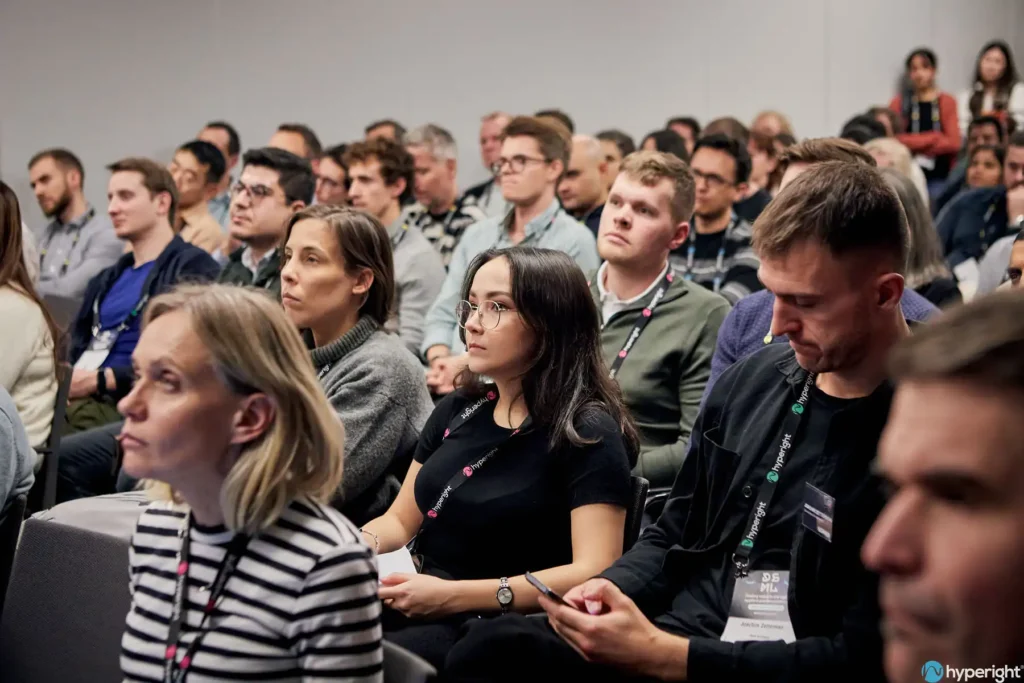

In Summary
This presentation at the Nordic Data Science and Machine Learning NDSML Summit 2023 emphasizes the importance of challenging assumptions, breaking down problems into essential components, and adopting a measure-model-optimize framework to discover the truth and create effective solutions for complex challenges.
Explore the transformative world of data science with Hyperight Premium, featuring over 1000 practical case study videos. Delve into insights shared by industry experts, transcending conventional boundaries and enhancing your understanding of the nuances of data.

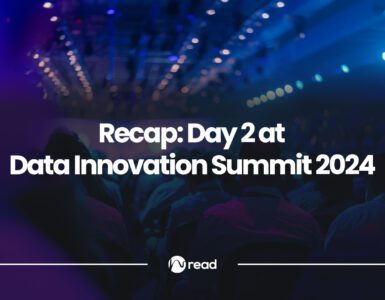
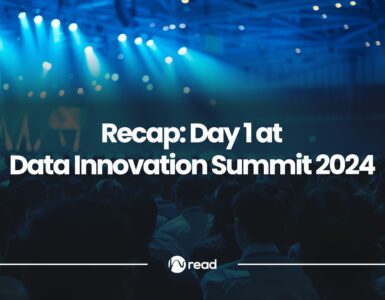











Add comment